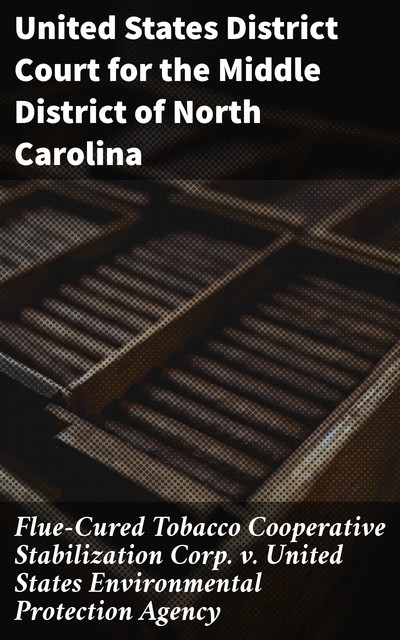The case study, “Flue-Cured Tobacco Cooperative Stabilization Corp. v. United States Environmental Protection Agency,” delves into the intricate legal battle centered around environmental regulations affecting the tobacco industry in North Carolina. Written in a clear and incisive legal style, this document provides a thorough examination of the intersection between agricultural practices and environmental law. It dissects the complexities of regulatory compliance, highlighting the implications of the Environmental Protection Agency's (EPA) decisions on flue-cured tobacco producers. Through judicial opinions and detailed legal arguments, the narrative reveals the broader context of agricultural policy and environmental advocacy in the United States, making it an essential resource for understanding contemporary legal challenges faced by traditional industries. The United States District Court for the Middle District of North Carolina, an institution that provides a vital forum for federal legal disputes, produces this text in response to the growing tension between agricultural stakeholders and environmental regulations. The court's ruling reflects the expertise of jurists grappling with the realities of governance, economic impact, and ecological sustainability, offering a unique perspective on how law shapes agricultural practices. This case study is highly recommended for legal scholars, environmentalists, and agricultural policy makers. It not only elucidates the challenges faced by the tobacco industry but also serves as a critical reference for those interested in the evolving relationship between industry and regulatory frameworks. Whether you're a student of law or a practitioner in environmental policy, this document will deepen your understanding of these pressing issues.


